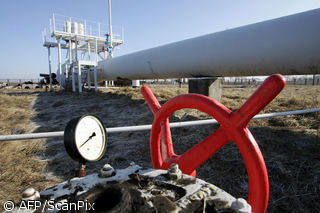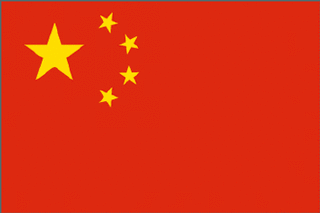The Investment Image program approved in August 2002 is aimed at increasing the country's investment rating and image
Published:
3 April 2003 y., Thursday
Foreign direct investment was very insignificant prior to 1994 at $100 million - $150 million a year. This then began to improve considerably and FDI in 1996 - 1998 was about $500 million - $700 million a year and continued growing.
Average annual foreign investment in the past three years was eight to ten times lower than in Kazakhstan, Hungary, Czech Republic, and Poland. Ukraine is close to last in Central and Eastern Europe in terms of per capita FDI, which is currently $111, nearly 10 times less than in Czech Republic, Poland, and the Baltic countries. The FDI index calculated by the United Nations Conference on Trade and Development (UNCTAD) each year places Ukraine 95th of 140 UN members (the index is a ratio of the share each country has in global FDI and its share in global GDP). This means that administrative bodies must pay closer attention to the country's investment appeal.
The country set up 11 special economic zones and nine priority development territories in the past three years that provide favorable conditions for foreign investors. The introduction of special conditions
investment in special economic zones and development territories reached nearly 7% of total foreign investment in Ukraine.
The Ukrainian president initiated efforts that dramatically improved the conditions for investing in the real sector. This included the introduction in the mid-1990s of perks for foreign companies and
agriculture. Ukraine also launched economic experiments in mining and metallurgy, shipbuilding, aircraft building, the cement industry, housing construction, the light and woodworking industries.
The investment appeal of industries began to improve after production stabilized and the economy began to grow. Almost all economic and social indicators have improved in Ukraine in the past three to four years: GDP, industrial output, agricultural production, production of consumer goods, and retail sales are increasing. This has helped create a favorable investment climate.
The Ukrainian president in early 2001 signed a decree on measures to attract investment to Ukraine that made this a priority. Another decree was signed that summer on measures to improve the investment climate that outlined tasks to simplify procedures and eliminate bureaucratic red tape in the registration of foreign investment. The government in December 2001 confirmed a program to develop investment in 2002 - 2010 and later confirmed measures to achieve this.
Šaltinis:
Interfax News Agency
Copying, publishing, announcing any information from the News.lt portal without written permission of News.lt editorial office is prohibited.
The most popular articles
 The European Commission has approved, under EC Treaty state aid rules, an amendment to a Lithuanian scheme allowing aid to be granted of up to €500 000 per company, initially approved on 8 June 2009.
more »
The European Commission has approved, under EC Treaty state aid rules, an amendment to a Lithuanian scheme allowing aid to be granted of up to €500 000 per company, initially approved on 8 June 2009.
more »
 As agreed by the President of the European Commission and the President of the Russian Federation during the last EU-Russia Summit in Khabarovsk, the EU and Russia have strengthened the current dispositions under the EU-Russia Energy Dialogue to prevent and manage potential energy crises, with an enhanced Early Warning Mechanism.
more »
As agreed by the President of the European Commission and the President of the Russian Federation during the last EU-Russia Summit in Khabarovsk, the EU and Russia have strengthened the current dispositions under the EU-Russia Energy Dialogue to prevent and manage potential energy crises, with an enhanced Early Warning Mechanism.
more »
 The European Union has today presented to the World Trade Organization the trade facilitation projects it has financed between 2006 and 2008.
more »
The European Union has today presented to the World Trade Organization the trade facilitation projects it has financed between 2006 and 2008.
more »
 The European Commission has authorised, under the EC Treaty’s rules on state aid, a planned state guarantee by Romania to enable Ford Romania SA to access a loan from the European Investment Bank (EIB).
more »
The European Commission has authorised, under the EC Treaty’s rules on state aid, a planned state guarantee by Romania to enable Ford Romania SA to access a loan from the European Investment Bank (EIB).
more »
 The economic crisis has left many countries with budget deficits well over the 3% limit. The commission is proposing deadlines for reducing the gaps.
more »
The economic crisis has left many countries with budget deficits well over the 3% limit. The commission is proposing deadlines for reducing the gaps.
more »
 Statistics Lithuania informs that in October 2009, against September, prices for consumer goods and services went down by 0.4 per cent.
more »
Statistics Lithuania informs that in October 2009, against September, prices for consumer goods and services went down by 0.4 per cent.
more »
 Lithuania’s Vice-Minister of Foreign Affairs Šarūnas Adomavičius took part in bilateral political consultations with representatives from foreign affairs, commerce and transport ministries of the People’s Republic of China.
more »
Lithuania’s Vice-Minister of Foreign Affairs Šarūnas Adomavičius took part in bilateral political consultations with representatives from foreign affairs, commerce and transport ministries of the People’s Republic of China.
more »
 Under the budgetary surveillance powers conferred by the EU Treaty, the European Commission today proposed to the Council to set 2013 as the deadline for the correction of the budget deficits in Austria, the Czech Republic, Germany, Slovakia, Slovenia, the Netherlands and Portugal.
more »
Under the budgetary surveillance powers conferred by the EU Treaty, the European Commission today proposed to the Council to set 2013 as the deadline for the correction of the budget deficits in Austria, the Czech Republic, Germany, Slovakia, Slovenia, the Netherlands and Portugal.
more »
 A joint partnership between the World Bank, the Moldovan Ministry of Agriculture and Food Industry and the Ministry of Environment was launched in Moldova’s capital in the late days of October.
more »
A joint partnership between the World Bank, the Moldovan Ministry of Agriculture and Food Industry and the Ministry of Environment was launched in Moldova’s capital in the late days of October.
more »
 World Bank Group President Robert B. Zoellick today joins senior officials from the Government of Singapore to launch a new global urban strategy that will guide Bank advisory services and financing in the sector over the next decade.
more »
World Bank Group President Robert B. Zoellick today joins senior officials from the Government of Singapore to launch a new global urban strategy that will guide Bank advisory services and financing in the sector over the next decade.
more »